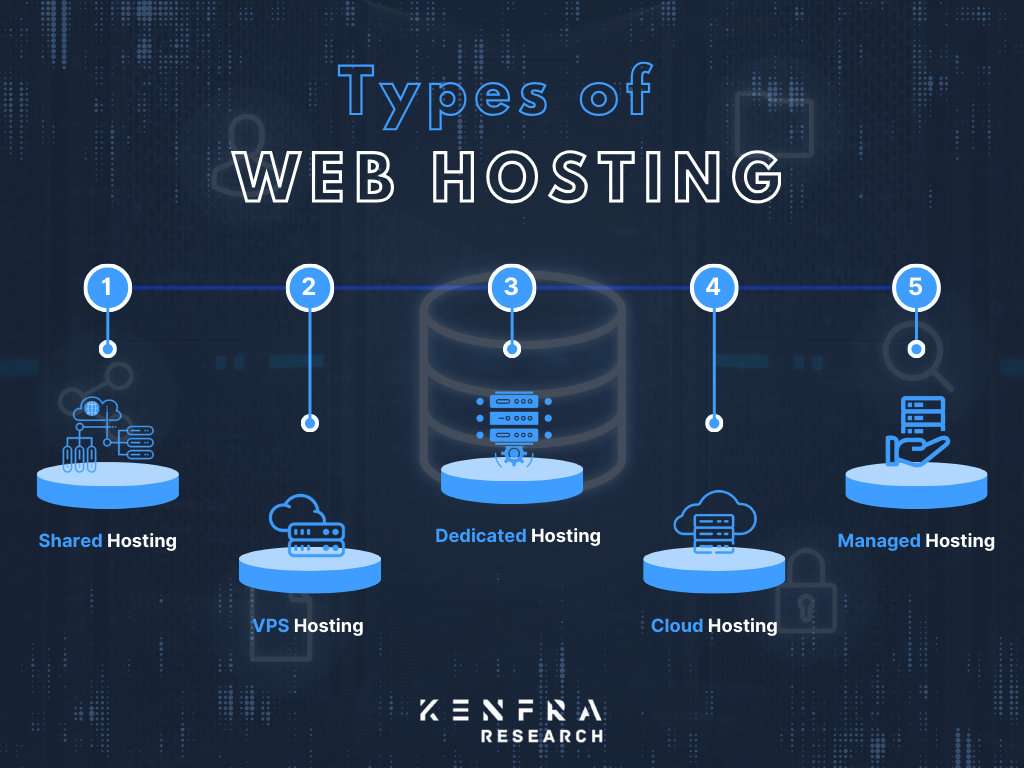04Nov

If you’re launching a website, one of the most crucial decisions you’ll make is choosing the right web hosting. Web hosting services are the foundation of your website, providing the resources and stability to keep it running smoothly and securely. But with so many hosting options available, from shared hosting to VPS and dedicated servers, making the right choice can feel overwhelming. This guide will help you understand how to choosing the right web hosting, the different types of web hosting and key factors to consider.
Web hosting is a service that allows individuals or businesses to make their websites accessible on the internet. When you choose a web hosting provider, you’re essentially renting space on a server to store all your website’s files, data, and content, making it accessible to anyone with an internet connection.

Shared hosting is the most affordable and beginner-friendly option. Here, multiple websites share the same server resources, which helps reduce costs. It’s a great choice for personal blogs, small businesses, or sites with low traffic.
VPS hosting is a step up from shared hosting. In this setup, the server is divided into virtual sections, so each website gets its own dedicated portion of resources. This means better performance and reliability.
With dedicated hosting, you get an entire server dedicated solely to your website. It’s ideal for large websites, high-traffic sites, or businesses that require maximum performance and security.
Cloud hosting is a flexible, scalable hosting option that uses multiple interconnected servers. When traffic spikes, resources are automatically adjusted to maintain performance.
Managed hosting services handle the technical aspects of server management, including security updates, backups, and maintenance, making it a stress-free choice.
Choosing the right web hosting provider can make a significant difference in your website’s success. Take the time to assess your needs, consider future growth, and review each option’s pros and cons. With the right hosting plan, your website will have the foundation it needs to thrive and support your goals long-term.
Need support with your web hosting? Kenfra Research is here to guide you in choosing the right web hosting for your needs.

Writing a PhD manuscript is a rigorous process that requires precision, clarity, and coherence. However, the initial draft is... read more

Writing a PhD thesis is a challenging yet rewarding journey It requires careful planning, a deep understanding of your... read more
Passwords, keys and more: The internal data that Microsoft employees exposed on the open internet Introduction:A recent data breach has exposed... read more

Publishing research is a crucial milestone in any PhD journey. The process of selecting the right journal for your... read more

PhD research is challenging. Between managing literature, taking notes, tracking tasks, and discovering the latest studies, it’s easy to feel... read more

Embarking on a PhD journey is an exciting yet challenging endeavor. A well-structured Research Plan for Your PhD Thesis... read more

Tamil Nadu’s Best PhD Assistance Company - Kenfra Research: Helping PhD Scholars Across India Achieve Their Academic Dreams read more

Publishing your research in reputed journals is essential for academic growth and recognition. Among these, UGC CARE Journals stand... read more
WhatsApp us
Leave a Reply